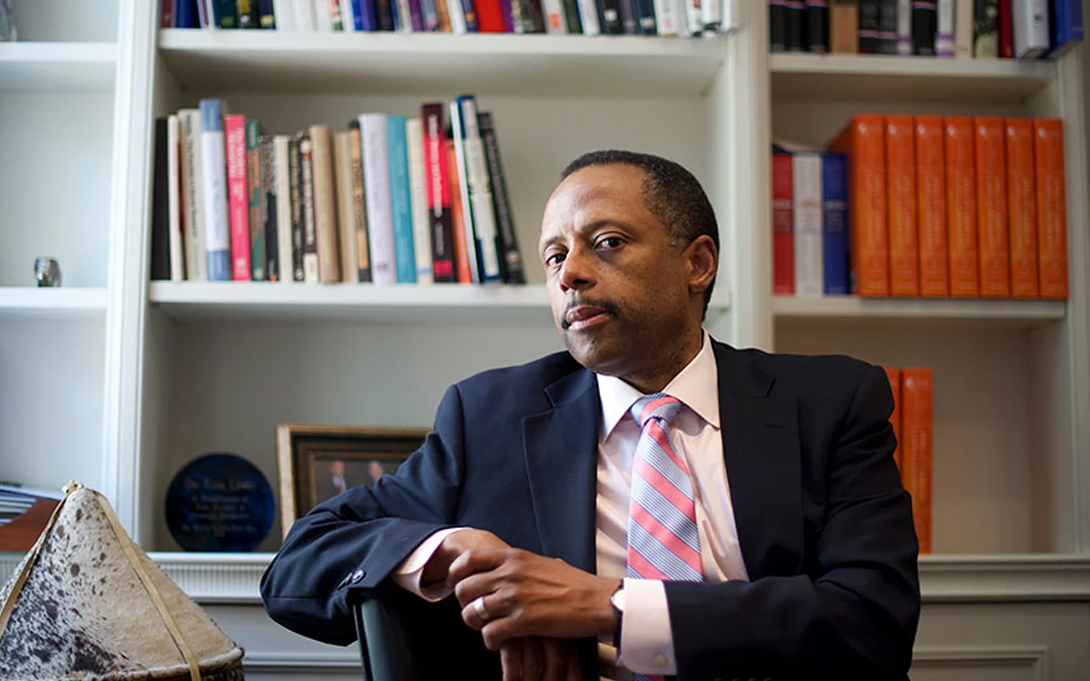
Ford School professor Earl Lewis joined Stephanie Fryberg as recipients of two $5 million grants through The Andrew W. Mellon Foundation’s Just Futures Initiative competition. The grants will fund projects that focus on addressing racial inequity.
Lewis’ project, “Crafting Democratic Futures: Situating Colleges and Universities in Community-based Reparations Solutions,” will aim to build on institutional and community-based partnerships to explore localized reparations solutions for African American and some Native American communities.
The policies and initiatives that are produced, which Lewis intends to be related to workforce development, entrepreneurship, homeownership, education and infrastructure, will stem from the deep exploration of local histories, municipal support and meaningful community engagement.
“There has been a turn of events in the United States in the last four or five years,” said Lewis, who also is a professor of history and Afroamerican and African studies in LSA, and director of the Center for Social Solutions.
“Instead of waiting for the federal government to actually come up with a solution, communities themselves have begun to mount efforts to look at community-based solutions. We’ve moved from what was for the last 30-plus years deemed to be only a federal solution, to something that is grassroots and local.”
To carry out the pilot program, Lewis, will collaborate with Carnegie Mellon and Emory universities, Rutgers University-Newark, Spelman College, WQED Multimedia and the Council of Independent Colleges, whose member institutions include Concordia College in Moorhead, Minnesota; Connecticut College; Wesleyan College in Macon, Georgia; and Wofford College in Spartanburg, South Carolina.
“We’re proud to have these exceptional scholars on our campus,” Provost Susan Collins said. “These unprecedented awards recognize the outstanding humanities research that is happening at U-M, supported by a robust ecosystem, as well as the ingenuity of our scholars.
“They also reflect the excellent support provided by humanities leadership in the Provost’s Office, the U-M Humanities Collaboratory, the Humanities Institute, U-M Office of Research and the Office of University Development, as well as the College of Literature, Science, and the Arts, throughout the application process.
“We are especially pleased that these projects will amplify and be supported by our broader campus-wide initiatives to enhance research and scholarship on anti-racism, equity and social justice.”
In collaboration with IllumiNative, the Center for Native American Youth at Aspen Institute and the Native Organizers Alliance, Fryberg will develop the Research for Indigenous Social Action and Equity Center, with the help of the Just Futures grant. The new center’s university collaborations include Harvard, Brown and Stanford universities and the University of California, Berkeley.
The center’s mission will be to conduct multidisciplinary humanist research centering the voices of Indigenous peoples and experiences, build, support, and sustain a multi-university pipeline of Indigenous scholar-activists, and put research into action by integrating artists and activists who use the center’s research to promote and share accurate, expansive and empowering narratives of Indigenous people.
The Mellon Foundation awarded more than $72 million in grants for 16 humanities, arts, and humanities-inflected social sciences projects across the country, the organization announced Jan. 13.
The foundation said the initiative was designed to support “visionary, unconventional, experimental and groundbreaking projects in order to address the long-existing fault lines of racism, inequality and injustice that tear at the fabric of democracy and civil society.”
The original version of this article was originally published by Michigan News and can be seen here.
